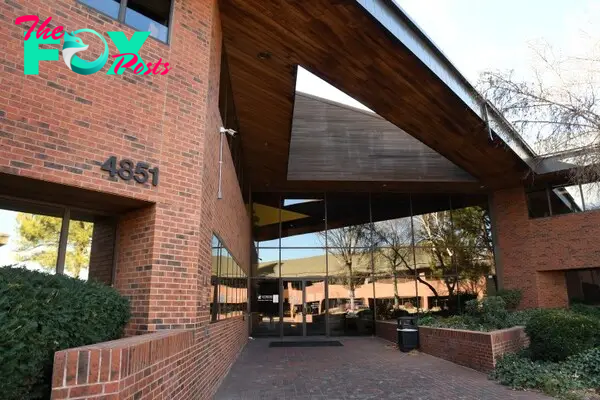Health
Larimer County’s mental health center lays off 75 people, blames rise in uninsured and Medicaid reform
Larimer County’s community mental health center has abruptly laid off 75 employees, causing a gap in care for some of the most vulnerable patients and increasing concerns about how far the fallout will spread after a seismic shift in Medicaid funding.
Connor Grogan had 35 clients at SummitStone Health Partners in Fort Collins when he was told at a mandatory meeting last week that he was among those losing their jobs because of a budget crisis. He had to turn in his phone and laptop on the spot, with no opportunity to say goodbye to his patients.
“It was unethical the way that it was handled,” said Grogan, who had counseled children, families and adults at the center for more than two years. “At the very least, I feel like it is not trauma-informed, which is something that SummitStone had been preaching about for quite some time.”
The community mental health center, one of 18 statewide, is the latest to lay off employees in the wake of hundreds of thousands of Coloradans losing Medicaid coverage after the end of the pandemic public health emergency and a massive change in the way the state Medicaid division reimburses behavioral health providers.
Mind Springs, the safety-net mental health center for seven counties in northwestern Colorado, laid off 49 people, 13% of its administrative staff, this summer. Centennial Mental Health, which serves 10 counties in the northeastern corner of the state, laid off three of its five top executives in June. And Jefferson Center for Mental Health, which serves Jefferson, Clear Creek and Gilpin counties, is dealing with a $5 million shortfall on a $89 million budget, a deficit so large that plans for a merger with Denver’s mental health center, Wellpower, were called off in June.
SummitStone had to cut $14 million to break even on its $80 million budget. About $9 million of those cuts came from staff reductions.
“I’m going to be OK,” said Grogan, who is likely to find a job because he speaks Spanish and is a male therapist. “The piece that hurts the most is that I had zero closure with my clients. I lost yearslong relationships in an instant. I couldn’t even say goodbye.
“I’m devastated for the most vulnerable humans in our community that were getting better. I worry about suicides rising in our community. I worry about overdoses rising in our community.”
Most of the employees who lost their jobs did not work directly with clients and instead were in other departments, including technology, SummitStone CEO Michael Allen said. The 75 jobs were about 10% of the workforce at SummitStone, which has locations in Fort Collins, Loveland and Estes Park. Executives took a 5% cut in pay.
The first budget problem for the center was that thousands of Coloradans were dropped from Medicaid insurance at the end of the three-year federal public health emergency put in place at the start of the COVID pandemic. In the past year, the percentage of SummitStone clients without insurance rose to 25%, up from 17%.
On top of that, landmark legislation that brought sweeping changes to Colorado’s mental Health system — including how mental Health providers get paid — went into effect July 1.
First effects of monumental change
The Behavioral Health Act, passed in 2022, was intended to break up the monopoly of Colorado’s mental Health centers, opening them up to comPetition with private behavioral Health agencies.
For years, the centers operated under no-bid contracts with the Colorado Department of Health Care Policy and Financing, which includes the Medicaid government insurance program for people with low incomes. The centers received $437 million in tax dollars per year and were required to treat people in their regions.
Under the new structure, mental health centers don’t get a lump sum. They must bill the state Medicaid program for every service they provide, per person — a reimbursement for an individual therapy appointment, another for a group therapy session, another for a housing consultation.
Mental health centers warned lawmakers that communities, especially in rural areas, could end up with fewer services under the new payment structure. They worry providers will offer only services that make money, leaving out help with housing and employment.

This summer, it seems the effects of the monumental change in policy are beginning to take shape. Mental health experts are wondering if the current structure is beginning to break apart, and they hope the new one that forms in its place will end up more robust and capable of serving more people.
Still, the process is painful.
The three community mental health centers that have had layoffs “likely won’t be the only ones,” said Kara Johnson-Hufford, CEO of the Colorado Behavioral Healthcare Council, the association for mental health centers.
“Folks have scraped their reserves,” she said. “They are not filling open positions.”
-

 Health1h ago
Health1h agoWhat to Expect at a Colonoscopy
-

 Health2h ago
Health2h agoHuman aging accelerates dramatically at age 44 and 60
-

 Health2h ago
Health2h agoBiden administration’s negotiated price cuts for 10 common prescription drugs likely to save Medicare billions, beginning in 2026
-

 Health2d ago
Health2d agoScientists finally explain MIS-C, the rare post-COVID sydrome seen in kids
-

 Health2d ago
Health2d agoHeman Bekele Is TIME’s 2024 Kid of the Year
-

 Health2d ago
Health2d agoLargest animal genome sequenced — and just 1 chromosome is the size of the entire human genome
-

 Health3d ago
Health3d agoHard-to-treat traumas and painful memories may be treatable with EMDR – a trauma therapist explains why it is gaining popularity
-

 Health3d ago
Health3d agoWest Nile virus season returns − a medical epidemiologist explains how it’s transmitted and how you can avoid it


























